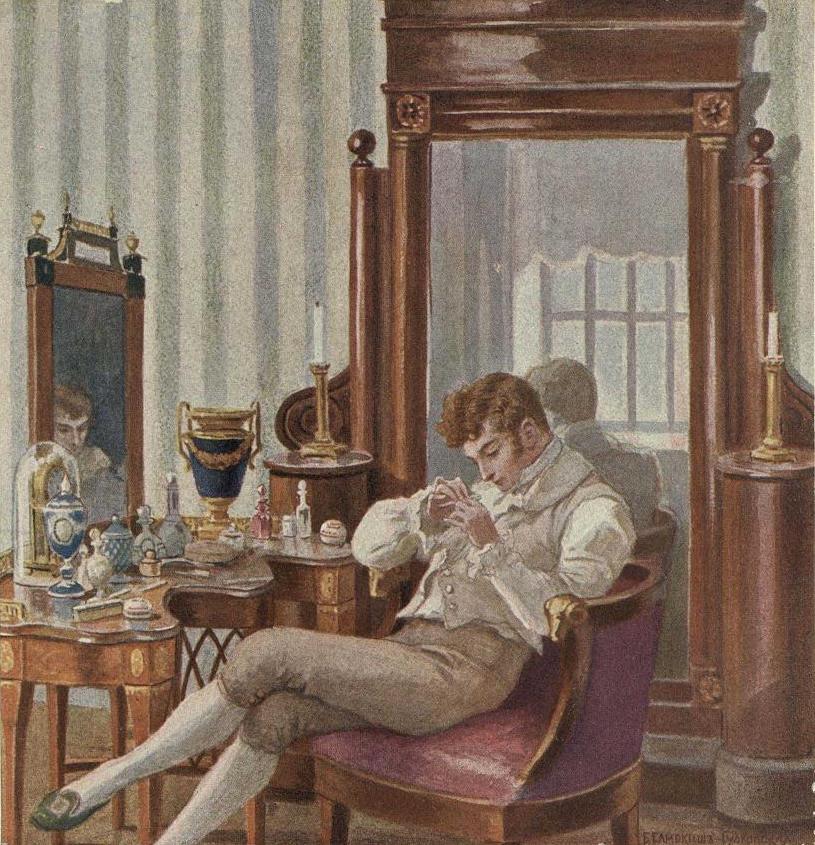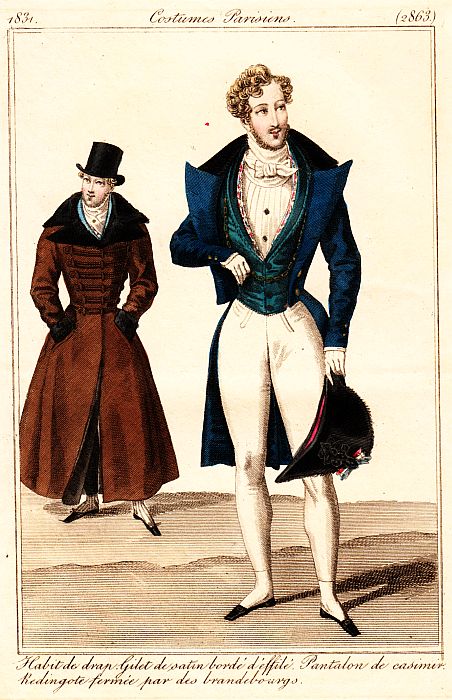|
Eugeny Onegin
''Eugene Onegin, A Novel in Verse'' (, pre-reform Russian: Евгеній Онѣгинъ, романъ въ стихахъ, ) is a novel in verse written by Alexander Pushkin. ''Onegin'' is considered a classic of Russian literature, and its eponymous protagonist has served as the model for a number of Russian literary heroes (so-called '' superfluous men''). It was published in serial form between 1825 and 1832. The first complete edition was published in 1833, and the currently accepted version is based on the 1837 publication. Almost the entire work is made up of 389 fourteen-line stanzas (5,446 lines in all) of iambic tetrameter with the unusual rhyme scheme , where the uppercase letters represent feminine rhymes while the lowercase letters represent masculine rhymes. This original structure is known as the " Onegin stanza" or "Pushkin sonnet". The story is told by a narrator (a lightly fictionalized version of Pushkin's public image), whose tone is educated, worldly, and ... [...More Info...] [...Related Items...] OR: [Wikipedia] [Google] [Baidu] |
Alexander Pushkin
Alexander Sergeyevich Pushkin () was a Russian poet, playwright, and novelist of the Romantic era.Basker, Michael. Pushkin and Romanticism. In Ferber, Michael, ed., ''A Companion to European Romanticism''. Oxford: Blackwell, 2005. He is considered by many to be the greatest Russian poet,Short biography from University of Virginia . Retrieved 24 November 2006.Allan Reid, "Russia's Greatest Poet/Scoundrel" Retrieved 2 September 2006. as well as the founder of modern Russian literature [...More Info...] [...Related Items...] OR: [Wikipedia] [Google] [Baidu] |
Masculine Rhyme
A masculine ending and feminine ending or weak ending are terms used in prosody, the study of verse form. In general, "masculine ending" refers to a line ending in a stressed syllable; "feminine ending" is its opposite, describing a line ending in a stressless syllable. The terms originate from a grammatical pattern of the French language. When masculine or feminine endings are rhymed with the same type of ending, they respectively result in masculine or feminine rhymes. Poems often arrange their lines in patterns of masculine and feminine endings. The distinction of masculine vs. feminine endings is independent of the distinction between metrical feet. Description In prosody (the study of verse form), masculine ending refers to a line ending in a stressed syllable while a feminine or weak ending describes a line ending in a stressless syllable. Etymology The terms ''masculine ending'' and ''feminine ending'' are not based on any cultural concept of masculinity or fe ... [...More Info...] [...Related Items...] OR: [Wikipedia] [Google] [Baidu] |
Pskov
Pskov ( rus, Псков, a=Ru-Псков.oga, p=psˈkof; see also Names of Pskov in different languages, names in other languages) is a types of inhabited localities in Russia, city in northwestern Russia and the administrative center of Pskov Oblast, located about east of the Estonian border, on the Velikaya, Velikaya River. Population: Pskov is one of the oldest cities in Russia. During the Middle Ages, it served as the capital of the Pskov Republic and was a trading post of the Hanseatic League before it was incorporated into the Grand Duchy of Moscow and became an important border fortress in the Tsardom of Russia. History Early history Pskov is one of the oldest cities in Russia. The name of the city, originally Pleskov (historic Russian spelling , ), may be loosely translated as "[the town] of :wikt:purling, purling waters". It was historically known in English as Plescow. Its earliest mention comes in 903, which records that Igor of Kiev married a local lady, Olga ... [...More Info...] [...Related Items...] OR: [Wikipedia] [Google] [Baidu] |
Odessa
ODESSA is an American codename (from the German language, German: ''Organisation der ehemaligen SS-Angehörigen'', meaning: Organization of Former SS Members) coined in 1946 to cover Ratlines (World War II aftermath), Nazi underground escape-plans made at the end of World War II by a group of ''SS'' officers with the aim of facilitating secret escape routes, and any directly ensuing arrangements. The concept of the existence of an actual ODESSA organisation has circulated widely in fictional Spy fiction, spy novels and movies, including Frederick Forsyth's best-selling 1972 thriller ''The Odessa File''. The escape-routes have become known as "Ratlines (World War II), ratlines". Known goals of elements within the ''SS'' included allowing ''SS'' members to escape to Argentina or to the Middle East under false passports. Although an unknown number of wanted Nazis and war criminals escaped Germany and often Europe, most experts deny that an organisation called ODESSA ever existed. T ... [...More Info...] [...Related Items...] OR: [Wikipedia] [Google] [Baidu] |
The Gypsies (poem)
''The Gypsies'' () is a narrative poem in 569 lines by Alexander Pushkin, originally written in Russian in 1824 and first fully published in 1827. The last of Pushkin's four 'Southern Poems' written during his exile in the south of the Russian Empire, ''The Gypsies'' is also considered to be the most mature of these Southern poems, and has been praised for originality and its engagement with psychological and moral issues. The poem has inspired at least eighteen operas and several ballets. Outline The poem opens with an establishment of the setting in Bessarabia and a colorful, lively description of the activities of a gypsy camp there: The poem is written almost exclusively in iambic tetrameter, and this regular metre is established from the outset: × / × / × / × / Горит огонь; семья кругом Gorít ogón'; sem'yá krugóm × / × / × / × / × Готовит ужин в чистом поле (ll.9–10) Gotóvit úzhin v ... [...More Info...] [...Related Items...] OR: [Wikipedia] [Google] [Baidu] |
Serial (literature)
In literature, a serial is a printing or publishing format by which a single larger Creative work, work, often a work of Narrative, narrative fiction, is published in smaller, sequential instalments. The instalments are also known as ''numbers'', ''parts'', ''fascicules'' or ''fascicles'', and may be released either as separate publications or within sequential issues of a periodical publication, such as a magazine or newspaper. Serialisation can also begin with a single short story that is subsequently turned into a series. Historically, such series have been published in periodicals. Popular short-story series are often published together in book form as collections. Early history The growth of moveable type in the 17th century prompted episodic and often disconnected narratives such as ''L'Astrée'' and ''Artamène, Le Grand Cyrus''. At that time, books remained a premium item, so to reduce the price and expand the market, publishers produced large works in lower-cost Hi ... [...More Info...] [...Related Items...] OR: [Wikipedia] [Google] [Baidu] |
Novel
A novel is an extended work of narrative fiction usually written in prose and published as a book. The word derives from the for 'new', 'news', or 'short story (of something new)', itself from the , a singular noun use of the neuter plural of ''novellus'', diminutive of ''novus'', meaning 'new'. According to Margaret Doody, the novel has "a continuous and comprehensive history of about two thousand years", with its origins in the Ancient Greek and Roman novel, Medieval Chivalric romance, and the tradition of the Italian Renaissance novella.Margaret Anne Doody''The True Story of the Novel'' New Brunswick, NJ: Rutgers University Press, 1996, rept. 1997, p. 1. Retrieved 25 April 2014. The ancient romance form was revived by Romanticism, in the historical romances of Walter Scott and the Gothic novel. Some novelists, including Nathaniel Hawthorne, Herman Melville, Ann Radcliffe, and John Cowper Powys, preferred the term ''romance''. Such romances should not be con ... [...More Info...] [...Related Items...] OR: [Wikipedia] [Google] [Baidu] |
Eugene Onegin Illustration
Eugene may refer to: People and fictional characters * Eugene (given name), including a list of people and fictional characters with the given name * Gene Eugene, stage name of Canadian born actor, record producer, engineer, composer and musician Gene Andrusco (1961–2000) * Eugene (wrestler), professional wrestler Nick Dinsmore * Eugene (actress) (born 1981), Kim Yoo-jin, South Korean actress and former member of the singing group S.E.S. Places Canada * Mount Eugene, in Nunavut; the highest mountain of the United States Range on Ellesmere Island United States * Eugene, Oregon, a city ** Eugene, OR Metropolitan Statistical Area ** Eugene (Amtrak station) * Eugene Apartments, NRHP-listed apartment complex in Portland, Oregon * Eugene, Indiana, an unincorporated town * Eugene, Missouri, an unincorporated town Business * Eugene Green Energy Standard, or EUGENE, an international standard to which electricity labelling schemes can be accredited to confirm that t ... [...More Info...] [...Related Items...] OR: [Wikipedia] [Google] [Baidu] |
Name Day
In Christianity, a name day is a tradition in many countries of Europe and the Americas, as well as Christian communities elsewhere. It consists of celebrating a day of the year that is associated with one's baptismal name, which is normatively that of a List of biblical names, biblical character or other saint. Where they are popular, individuals celebrate both their name day and their birthday in a given year. The custom originated with the Christian calendar of saints: believers named after a saint would celebrate that saint's feast day. Within Christianity, name days have greater resonance in areas where the Christian denominations of Catholic Church, Catholicism, Lutheranism and Orthodoxy predominate. In some countries, however, name-day celebrations do not have a connection to explicitly Christian traditions. History The celebration of name days has been a tradition in Catholic and Eastern Orthodox countries since the Middle Ages, and has also continued in some measur ... [...More Info...] [...Related Items...] OR: [Wikipedia] [Google] [Baidu] |
Eugene Onegin 01 (Kardovsky)
Eugene may refer to: People and fictional characters * Eugene (given name), including a list of people and fictional characters with the given name * Gene Eugene, stage name of Canadian born actor, record producer, engineer, composer and musician Gene Andrusco (1961–2000) * Eugene (wrestler), professional wrestler Nick Dinsmore * Eugene (actress) (born 1981), Kim Yoo-jin, South Korean actress and former member of the singing group S.E.S. Places Canada * Mount Eugene, in Nunavut; the highest mountain of the United States Range on Ellesmere Island United States * Eugene, Oregon, a city ** Eugene, OR Metropolitan Statistical Area ** Eugene (Amtrak station) * Eugene Apartments, NRHP-listed apartment complex in Portland, Oregon * Eugene, Indiana, an unincorporated town * Eugene, Missouri, an unincorporated town Business * Eugene Green Energy Standard, or EUGENE, an international standard to which electricity labelling schemes can be accredited to confirm that t ... [...More Info...] [...Related Items...] OR: [Wikipedia] [Google] [Baidu] |
Dandy
A dandy is a man who places particular importance upon physical appearance and personal grooming, refined language and leisurely hobbies. A dandy could be a self-made man both in person and ''persona'', who emulated the aristocratic style of life regardless of his middle-class origin, birth, and background, especially during the late 18th and early 19th centuries in Britain.''dandy'': "One who studies ostentatiously to dress fashionably and elegantly; a fop, an exquisite." (''OED''). Early manifestations of dandyism were ''Le petit-maître'' (the Little Master) and the musk-wearing Muscadin ruffians of the middle-class Thermidorean reaction (1794–1795). Modern dandyism, however, emerged in stratified societies of Europe during the 1790s revolution periods, especially in London and Paris. Within social settings, the dandy cultivated a persona characterized by extreme posed cynicism, or "intellectual dandyism" as defined by Victorian novelist George Meredith; whereas Thom ... [...More Info...] [...Related Items...] OR: [Wikipedia] [Google] [Baidu] |





